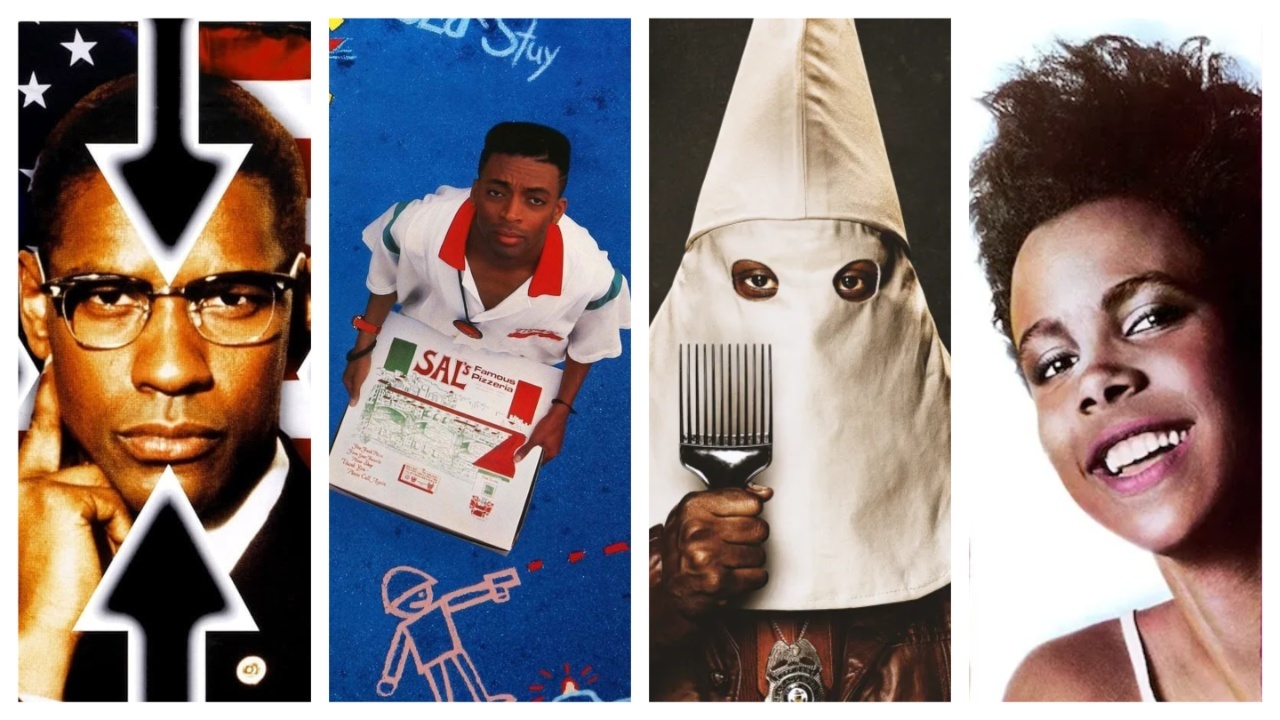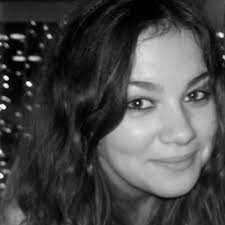10 of The Best Spike Lee Joints
We take a double dolly through the director’s back catalogue.


Get exclusive shortlists, celebrity interviews and the best deals on the products you care about, straight to your inbox.
You are now subscribed
Your newsletter sign-up was successful
With Highest 2 Lowest - which reunites Spike Lee and Denzel Washington - premiering at the Cannes Film Festival soon, now’s as good a time as any to dig into the director’s filmography.
The new Spike Lee film, from A24 and Apple, is based on Akira Kurosawa’s classic High and Low from 1963, which the Prince Charles Cinema in London is showing to mark the festival debut of this ‘re-interpretation’.
There’s plenty to fuel the hype. First, the Denzel of it all. Second, he’s joined by a cast including Jeffrey Wright (superb) and A$AP Rocky (why not). Third, it looks like Lee is setting the ransom plot in the world of NYC record executives, which makes a lot of sense. And fourth, the teaser trailer, set to James Brown’s The Payback with a cool-as-you-like voiceover, looks and sounds on point.
Highest 2 Lowest is set to hit cinemas in the UK on 22nd August and Apple TV+ on 5th September. Putting the documentaries and music videos of this prolific filmmaker mostly aside, here are ten of his finest films to watch in the meantime.
10. Crooklyn (1994)
It’s the early 1970s, we’re in Bed-Stuy, Brooklyn: enter the Carmichael family. The head of the household, Carolyn (Alfre Woodard), is trying to keep her five kids and piano player husband Woody (Delroy Lindo) under some sort of control. We see this particular block's characters, games and scraps from the eyes of the only Carmichael girl, nine-year-old Troy.
Crooklyn is a gorgeous, joy and chaos-filled coming-of-age film that Lee co-wrote with two of his siblings and based, in part, on his own childhood. Music runs under almost every scene - we’re talking Curtis Mayfield, Jean Knight, The J.B.’s, Smokey Robinson - and, as the critic bell hooks pointed out, Lee shows us he can depict a heartbreaking but ‘ordinary’ death with skill and care. Underseen and under-discussed, with a fabulous RuPaul cameo.
9. She’s Gotta Have It (1986)
Spike Lee made this for just $175,000, shot it in two weeks, and it’s his first feature film: you would not suspect any of this from watching She’s Gotta Have It. The protagonist, Nola Darling (Tracy Camilla Johns), narrates her feelings about rejecting monogamy, living ‘like a man,’ and her verdicts on her three lovers, Greer, Mars and Jamie.
Get exclusive shortlists, celebrity interviews and the best deals on the products you care about, straight to your inbox.
Lee cast himself as Mars since he didn’t have the money to pay any more actors with the arts grants he’d scrambled together after film school. (It’s always fun to analyse where he casts himself in subsequent films.) Shot almost all in black and white, it’s not just a vibey romantic comedy-drama, either, with the first of the arty, close-quarters canoodling scenes that pop up again and again in his filmography.
Back in the late 80s, its success was huge for indie films, plus, in his own way, Lee shone a light on black feminism and the creativity coming out of Brooklyn. Nola’s still got it.
8. 25th Hour (2002)
Seen as one of the first post 9/11 New York City films, this moody crime drama is based on a David Benioff book and follows the last 24 hours before drug dealer Monty Brogan (Edward Norton) goes to prison for seven years.
You’ve got Philip Seymour Hoffman, Rosario Dawson and Brian Cox in the cast, Cymande on the soundtrack in a thrilling, complicated, extended club scene and a paranoid whodunnit as Monty tries to figure out who ratted him out to the DEA: his girlfriend Naturelle or his gangster pal Kostya.
In one hate-filled rant that captures the era, a post-Fight Club Norton does not hold back as he curses every single last type of New Yorker in front of a bathroom mirror. They don’t make ‘em like this anymore - or at least, not for cinemas, they don’t.
7. Mo’ Better Blues (1990)
The first Spike Lee-Denzel Washington collab, Mo’ Better Blues, is fun to seek out or revisit. It’s a smaller scope than their other team-ups, with characters mostly concerned with making art, earning a living, and figuring out plural relationships.
A young Washington plays trumpeter Bleek Gilliam, leader of his own jazz quintet with a regular club gig, with no less than Wesley Snipes as Shadow on tenor sax and Giancarlo Esposito as Left Hand Lacey on keys. Originally titled Love Supreme, after the John Coltrane record, the film features laugh-out-loud vignettes and experiments, including his first, now-famous ‘floating’ double dolly shot and some eye-popping 360 versions of Lee’s signature shot.
A debate about music between Bleek and Shadow is sampled on The Roots’ Things Fall Apart. Then there’s the iconic scene in which Washington-as-Bleek, in shades and a cap, monologues cynically on stage about love songs, with the band backing him up: “let me spend the rest of my life with you… tonight”.
6. American Utopia (2020)
In the final act of David Byrne’s American Utopia, it becomes clear why Spike Lee was the perfect director for the job of putting together the concert film. Filmed live on Broadway, the Talking Heads’ frontman mixes the hits and new music with dance, theatre and his special kind of stand-up into something that does actually cohere once you take a step back.
The musicians are roaming the stage with wireless instruments, the dancers are dressed in grey suits identical to Byrne’s and Lee is giving us dramatic overheads, playful close-ups, rear shots, crowd shots and behind-the-curtain moments throughout.
Reframing and emphasising some of the best-known Talking Heads and solo songs, as well as playing one timely Janelle Monae cover, the American Utopia project is all about combatting alienation and connecting with people, which the Byrne-Lee creative bromance nicely demonstrates.
5. Inside Man (2006)
The biggest commercial hit to date for Lee, he ended up directing this slick Wall Street heist movie after Ron Howard dropped out. Inside Man sees Denzel and Clive Owen playing cat-and-mouse with Washington in the NYPD negotiator role and Owen taking on the 4D-chess-playing bank robber part. It’s twist-y, it’s turn-y in a satisfyingly Steven Soderbergh kind of way, and it feels high stakes enough when the robbery turns into a hostage situation.
There are a few distinctly Spike Lee touches woven into the classic script, like the kid playing a violent gangster video game, which Lee had animated for full-screen, plus Jodie Foster is having fun as a fixer working on behalf of the bank’s boss—a cut above your average mid-2000s thriller.
4. Da 5 Bloods (2020)
Delroy Lindo is just incredible in Da 5 Bloods. His performance alone justifies spending two and a half hours with this film. Slightly slept on, as it got pushed out on Netflix in that first mid-pandemic summer, Da 5 Bloods tells the story of four black Vietnam War veterans who return to Ho Chi Minh City, decades later, to try to find the body of their fallen friend and a buried locker of gold bars.
Norman, the young squad leader, is played beautifully by Chadwick Boseman in the flashback sequences in the jungle, in one of his last film roles, with Lee and his cinematographer Newton Thomas Sigel switching between four aspect ratios to distinguish between the different time periods and environments. For the soundtrack, Lee and his frequent collaborator, composer Terence Blanchard, chose six tracks from Marvin Gaye’s What’s Going On?
3. BlacKkKlansman (2018)
Back when we first saw BlacKkKlansman, we described it as “a riotous comedy about despicable racism”. This one seemed to cut through, after a couple of big, bold swings from Lee, including Chi-Raq in 2015.
That’s not to say this isn’t big and bold too, though, with John David Washington, as black cop Ron Stallworth, and Adam Driver, as his Jewish colleague Flip Zimmerman, infiltrating the goddamn KKK in 1970s Colorado Springs in a w-i-l-d plot that’s based on a true story. Lee is firing on all cylinders, splicing together scenes with civil rights leaders, Black Panthers, and Topher Grace as grand wizard David Duke, with another sublime soundtrack of soul classics and that signature swagger in the filmmaking.
Lee won an Oscar for BlacKkKlansman’s screenplay but lost out on the Best Picture award to… Green Book, thirty years after losing Best Picture to Driving Miss Daisy. Sigh.
2. Malcolm X (1992)
There are biopics and then there are biopics. In the peak - so far - of Spike Lee and Denzel Washington’s work together, this 3-hour 20-minute epic takes in all the incarnations of Malcolm Little, Brother Malcolm, Malcolm X.
The stunning central performance makes all the transformations contained in this one complicated, controversial life seem inevitable: hustler, prisoner, student, preacher, family man, leader.
Lee allows Malcolm X’s words on black nationalism and the Nation of Islam, and those of his various mentors and influences, to speak for themselves for the most part. In certain places, we get a flourish of poetic direction, in the framing, the lighting, the monochrome newsreel styling and, of course, when it comes, a spectacular, poignant double-dolly of Malcolm arriving at the event where he would be assassinated.
1. Do The Right Thing (1989)
You cannot take your eyes off a single frame of this film. It’s astonishing, all these years later, Spike Lee’s masterpiece still feels fresh. The colours, the characters, the camera angles, the dialogue, the music, the pure energy of this thing. Set in and around Sal’s Famous Pizzeria in Lee’s Brooklyn, in Do The Right Thing, a heatwave is the tripwire to tensions between the black residents on the block, the Italian pizzeria owner and his sons and the Korean grocery store owners. Everyone’s shiny-faced and everyone’s about to blow.
It’s Spike Lee and John Turturro saying Prince/Bruce/Prince/Bruce back and forth at each other, over a cigarette machine, sweating. It’s Senor Love Daddy and Sweet Dick Willie. It’s side stories that begin and end in one or two perfect scenes, all building on the main theme, asking the same questions. The final 30 minutes are still so affecting, even when you know what’s coming.


Sophie Charara is a freelance tech and culture journalist. Sophie is a former associate editor of WIRED, and former associate editor at Wareable and The Ambient.







